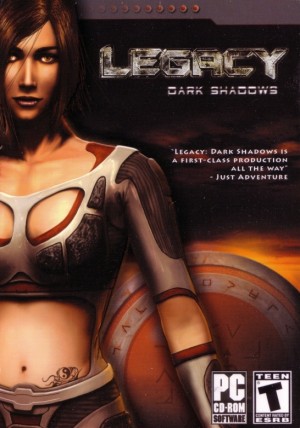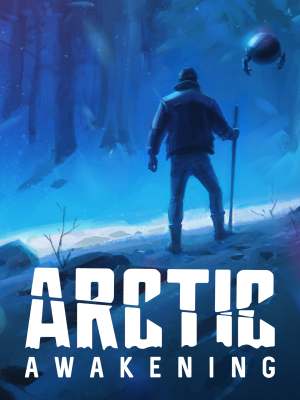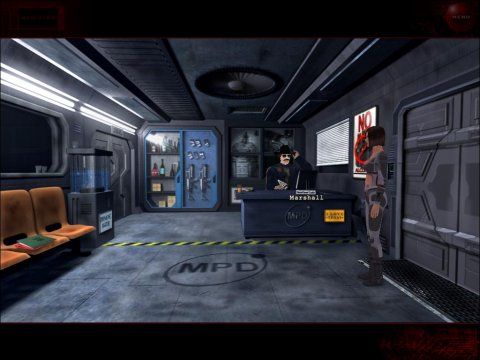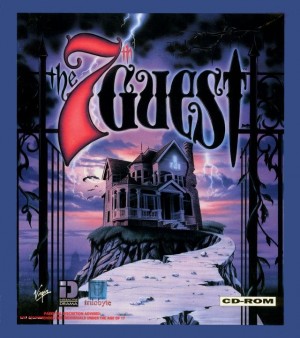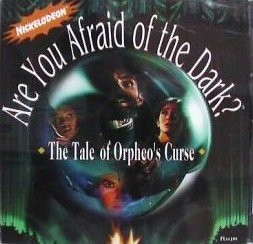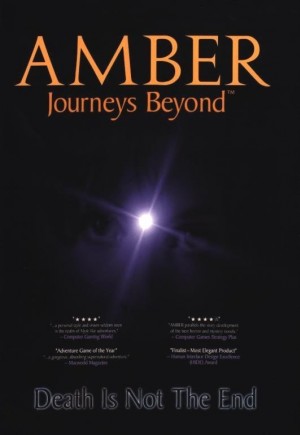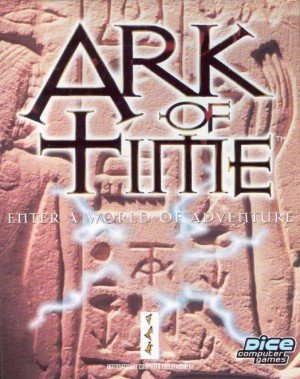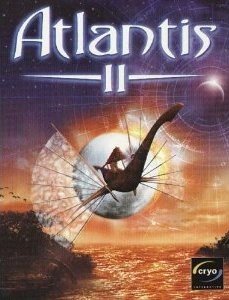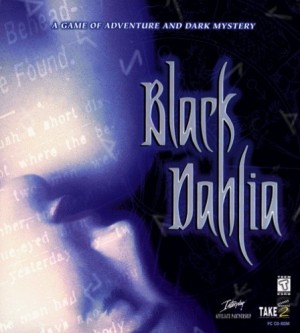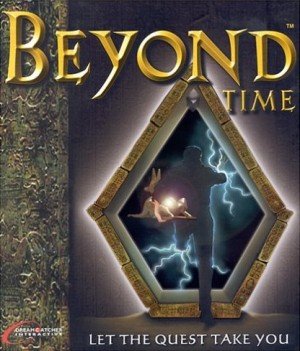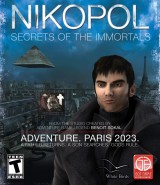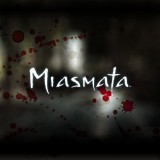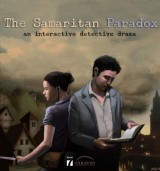Review for Legacy: Dark Shadows
Let me start by telling you what Legacy: Dark Shadows is not. It's not a game about vampires. The title doesn't have much to do with the game itself, let alone with the 1970's TV show it brings to mind. Legacy: Dark Shadows is also not a game about time travel. Not really about international espionage, either. Oh, and those similarities to The Longest Journey you keep hearing about? Legacy does have its fair share of those, but it's certainly not "this year's TLJ."
Still with me? Good, because you'll probably be glad to hear what Legacy: Dark Shadows is—a brand new, old-fashioned adventure game. We're talking good clean point & click fun. The main character carries a gun and occasionally shoots it, but Legacy is not an action/adventure hybrid. There are some mutant monsters roaming around underground, but this isn't an RPG. If you still have dreams about Daventry or you cried when Kate Walker jumped the train to Syberia, Legacy: Dark Shadows is well worth a look.
After reading Razbor Studios' lengthy synopsis, you may be under the impression that Legacy is a game about international corruption and bioterrorism spanning from World War II to the 22nd century. It's not. Aside from a short, virtually irrelevant prologue that takes place during WWII, the epic mystery Razbor is touting has little to do with the game's actual plot. From a player's perspective, the story is this: Ren Silver, a private investigator of sorts, must find her missing colleague Ted, who has been kidnapped because of some information he's uncovered. Her search takes her from a grim futuristic Earth to a colony on Mars, a cargo ship, an asteroid, back to Earth, and finally to an old military base in Stalingrad. So while you will engage in an interplanetary journey, if you're expecting time travel or the chance to play multiple characters with different roles in the plot, you'll be disappointed. The story told in Razbor's overview is eventually revealed to our heroine, but not until the end of the game, and then only passively through the diary entries of a character we never even meet.
Maybe you're looking forward to this game because of its "strong" female protagonist? I hate to burst your bubble, but Ren's no April Ryan. Okay, so she has a nice body and a couple of tattoos, and she knows how to carry a gun. On the other hand, Ren is one of the game's only female characters. The few others make only brief appearances—one a jealous girlfriend who whines that she's been engaged to a cheating boyfriend for eight years with no trip down the aisle, another a secretary who blubbers and begs when Ren waves a gun in her face. I guess, by comparison, Ren is a strong woman. I'm not complaining; I love an adventure game with a female lead. But I wouldn't say that girls (or guys, for that matter) should be lining up to play the game for that reason alone.
Okay, then. Why should you play Legacy: Dark Shadows? The easy answer: It's entertaining. This game has a lot of failings, but there was no point where I found myself bored or wanting to turn it off. That should count for something.
Legacy's interface is pretty easy to figure out. When you move your mouse over a hotspot, the cursor changes. You can then left-click for a description of the hotspot. If the hotspot represents a person or item that Ren can interact with, you're given options to Look, Talk, or Take. The hotspot cursor looks the same whether you can interact with an item or just hear what Ren has to say about it, so the only way to know if you can add an item to your inventory is by clicking every hotspot you encounter. In a few places the interface is inconsistent—one scene in particular where you have to click in areas that aren't indicated by hotspots—so if you find yourself horribly stuck, clicking madly on the screen may just be the solution.
The cursor turns green to indicate exits and areas where a close-up view is available. Single-click a green hotspot and Ren walks to it. In most cases, double-clicking will make her run. Occasionally the cursor will indicate that you can go somewhere, such as down a hallway or into an elevator, but Ren won't go, with no explanation other than "Can't do that" or "Nope." (These are some of the same stock answers she gives when you try to combine inventory items that can't be combined, or use them in ways they can't be used.) I assumed these locations would open up later in the game—and sure enough, they did—but a simple explanation along the lines of "I don't think I need to go there yet" would have helped.
Right-click at any point to bring up the inventory window. You can then left-click on an item to select it, or right-click for a brief description. In addition to the items you pick up, the inventory window also contains Ren's "tools of the trade"—a camera, a vial for collecting evidence samples, and an electronic code descrambler that she describes as a computerized crowbar. Ren's journal, which is also accessible in this window, can help you catch up if you're having trouble following the story.
Descriptions and hotspots become increasingly few and far between as the game progresses, almost as if the designers got tired of them or ran out of time for implementation. It's too bad; I would have liked to hear more of Ren's observations, particularly when she had the long-awaited experience of exploring an asteroid's surface. Some revealing voiceover could have taken this scene from mere eye-candy to a truly memorable and immersive experience.
The puzzles in Legacy: Dark Shadows are…well…easy. Many puzzles rely on picking up items and using them, for the most part in ways that make sense. Need to smash something? Good thing you're carrying a baseball bat! I'm all for using objects in logical ways, but my problem with these puzzles was the lack of guesswork required. If Ren needs to use an object to progress, chances are she just picked it up on that screen or one screen back. And most objects disappear from inventory once they've been used, giving the strange sensation that crowbar, or saw, or whatever, was placed in the environment for the sole purpose of getting Ren past that door, or chain, or whatever. Existential, to be sure, but not overly challenging.
This game is dominated by inventory-based puzzles, but there are a few logic puzzles thrown in. Figure-out-how-to-turn-all-the-switches-in-the-same-direction kinds of puzzles. Strangely enough, these puzzles aren't in the game because Ren needs to turn a bunch of switches in the same direction to achieve a goal, but because she's on board a ship whose computer has gone haywire and thinks it's fun to make her solve riddles. I didn't quite get how this fit into the story, but hey, I didn't quite get Kubrick's 2001: A Space Odyssey, either. The logic puzzles were still a nice change of pace.
Apart from Ren's weird habit of looking at the bottom of her shoe if she's left standing idle for too long, the game's run-of-the-mill 2D graphics were fine with me. To be fair, though, I don't care very much about the latest and greatest graphics. For those who do, I have two caveats. One, the characters' mouths don't move when they speak. This surprised me at first, and I emailed Razbor about it; turns out lip-syncing was left out of the game in order to meet a deadline. Fortunately, most conversations don't take place up close, so the lack of lip-syncing is not that obvious. But seeing as Runaway was all but crucified by some players over lip-syncing issues, I wanted to give fair warning. The second concern is that the short movies peppered throughout the game are noticeably fuzzy. This didn't bother me too much, but in this area my standards are much lower than some people's.
Voice acting in this game is hit or miss. A few characters, such as the Texas-twanged Marshall, worked pretty well. Most of the others are nothing special. Ren has a cute accent but tends to speak without emotion, or even inflection. A few characters, particularly those who are supposed to be Russian or drunk, speak so slowly you can read through an entire line of dialogue before they've finished the first word. (I highly recommend playing the game with subtitles and hitting the space bar to skip through any dialogue that bugs you.) Another problem is that some voice recordings are of noticeably lower quality than others—as if, mid-conversation, Ren has slipped into a Stephen Hawking impression. This didn't change my opinion of the game, but it did bring down the professionalism a notch. Overall, the dialogue could have been tightened up and translated a bit better. Several times I felt like I was supposed to laugh but the punchline had been lost in translation. With so many adventures being produced overseas though, this is an issue I'm getting used to, and considering Razbor is a Croatian studio that probably didn't have a big budget for professional translation, they did all right. Most of the time I understood what the characters were trying to say.
Something I really liked about Legacy was its music. The pieces that play in the background tend to be distinct and fit their locations perfectly. One that stands out is the quiet, reverent tune that accompanies Ren's exploration of the surface of a barren asteroid. I also liked the eerie opening strains of the theme that plays on the options screen—in fact, I liked this piece so much I often lingered on that screen just to hear it through to the end.
I said earlier that this game is not on par with The Longest Journey. At the risk of getting carried away, I'd like to explain why: The story. Oh, the story. It promises so much, yet delivers so little. The plot of Legacy: Dark Shadows is full of loose ends, logical leaps, and non-sequiturs. It takes too long to get going, and even then, the story never really comes into its own. After the intriguing but unconnected WWII prologue, the game opens with Ren taking a vacation on Mars. I was playing for a good 30 minutes before Ren was called back to Earth to look for her missing friend—the real start of the action. From this point on, the story seemed to be unfolding on its own, independent of what Ren was learning from her investigation. More than once during the game, a location showed up on the map for no apparent reason, as if the game (and Ren) knew something that I didn't. I felt like I'd missed key points in the narrative when, in reality, the game had given me no opportunity to understand what was going on. Right up until the final scene, I never quite knew what I was supposed to be doing, or why. I kept waiting for the story to come together in a brilliant, a-ha! moment, but it didn't. For me, story is the most important element of an adventure game, so the fact that this one is so poorly told is my biggest complaint.
It may seem like I'm being overly critical of this game. Truth is, there's a lot to be critical of. But there's a lot that works, too—in particular the traditional adventure game elements of exploring, collecting, and conversing. I can't exactly put into words what makes Legacy: Dark Shadows a game worth playing, and that may be the game's most redeeming quality. Razbor has tapped into something good here. The studio clearly respects traditional, point & click adventures, and their next project has the potential to explode with the right direction. Simply put, Legacy is an average game with above-average aspirations. It reminds me of an awkward teenager—trying really hard to impress, but not quite pulling it off. In spite of the game's faults, though, I hope it pays off for Razbor. I want them to make another game that delivers as much as they promised this time around. Legacy: Dark Shadows certainly wasn't the best game I've played in a long time, but with a little more attention to puzzling and story, Razbor's next project very well could be.
(Tri-Synergy is planning to ship Legacy: Dark Shadows to the US in November. GMX Media, the game's publisher in the UK, has pushed their release to February of 2005.)


